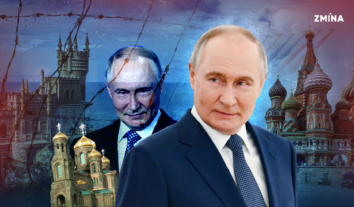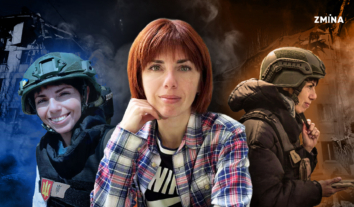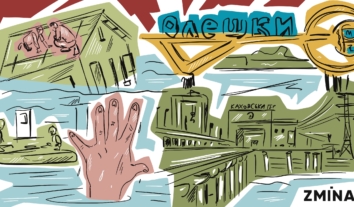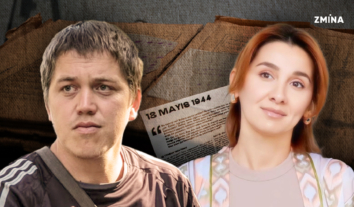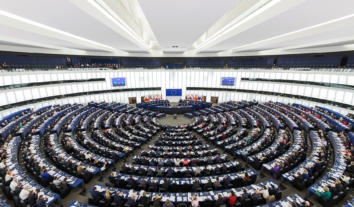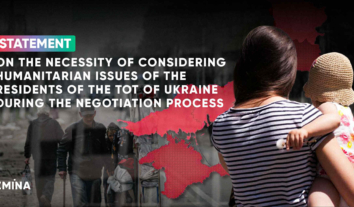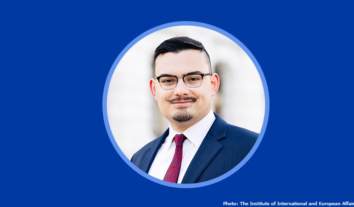Lithuanian human rights advocate and documentarian Gediminas Andriukaitis: “Ukraine must be in NATO”
In June 2023 Kyiv held Docudays UA Human Rights Film Festival. One of its jury members this year was Gediminas Andriukaitis – human rights defender and the director of INCONVENIENT FILMS in Lithuania.
Gediminas holds a master’s degree in international law from Vilnius University and was once the director of the Lithuanian Human Rights Centre. As a human rights advocate, he has also been involved in research and advocacy in the field of human rights. He initiated and co-produced the documentary multimedia project ‘Traces: Traversing the Past,’ which was nominated for the ‘Best European Online Project of the Year’ at the Prix Europa Continental Media Festival and received several national and international awards.
In the interview with ZMINA Andriukaitis shared his impressions of documentaries during Docudays UA Festival and told how Lithuania perceives Russia’s war against Ukraine, and explained why Vladimir Putin tried to persuade European political elites for a long time that there is what he defines as a ‘special democracy’ in the Russian Federation.
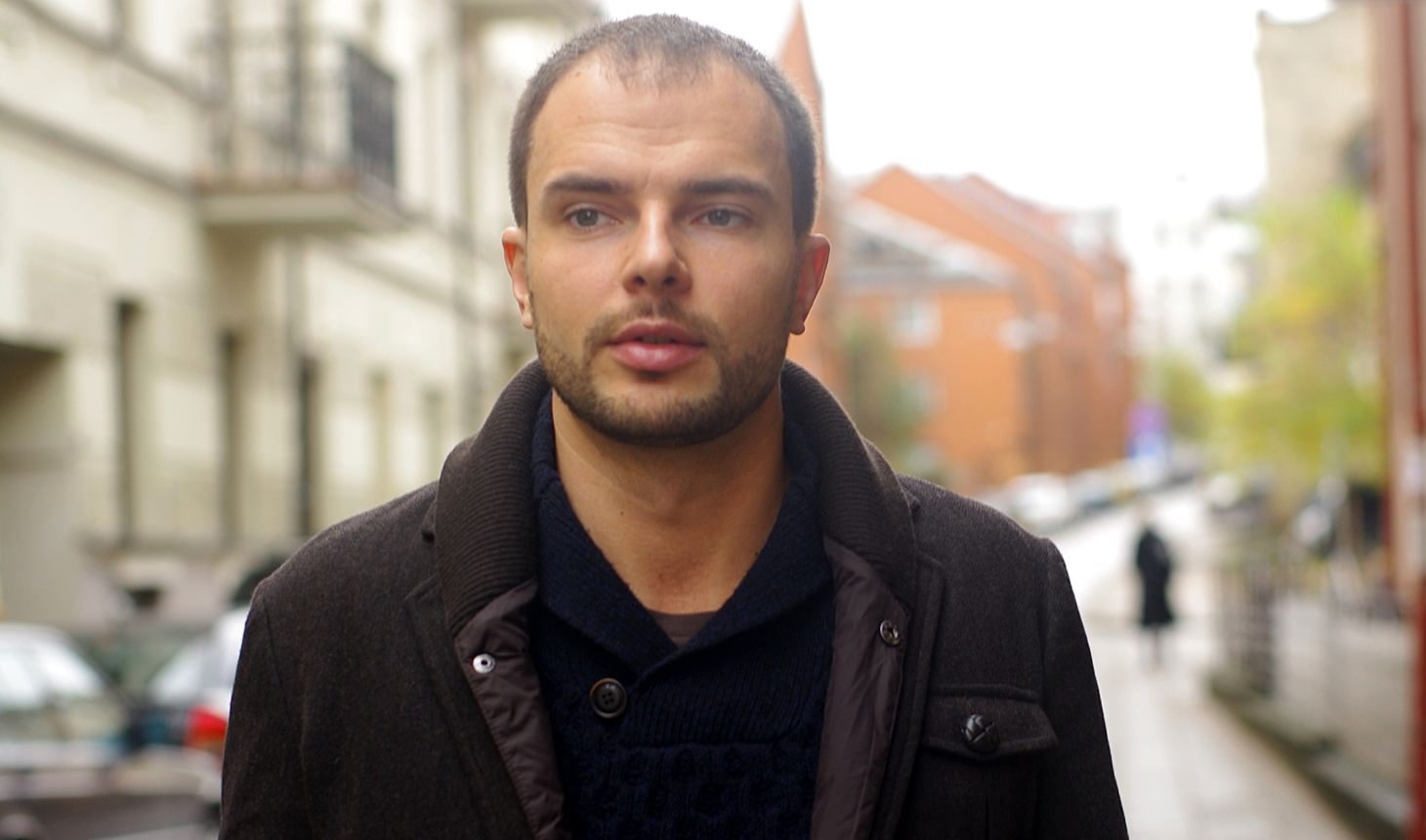 Gediminas Andriukaitis
Gediminas AndriukaitisWhat are your general impressions of Docudays UA?
We’ve been in touch with the Docudays UA team for at least ten years, and I came to the Festival six years ago or so. We collaborate closely, and I consider them a fantastic partner in Ukraine. We’ve been showing Ukrainian films for years in Vilnius and during the Inconvenient Film Festival.
I truly admire their work which, at the current time, is exceptional. Organising a festival amid this tragedy – which coincided with the explosion at the Nova Kakhovka dam, near Kherson – is such a powerful statement of resistance. It is a privilege to be invited here to participate in Docudays UA – I really admire everyone and support the Docudays UA team and everybody involved.
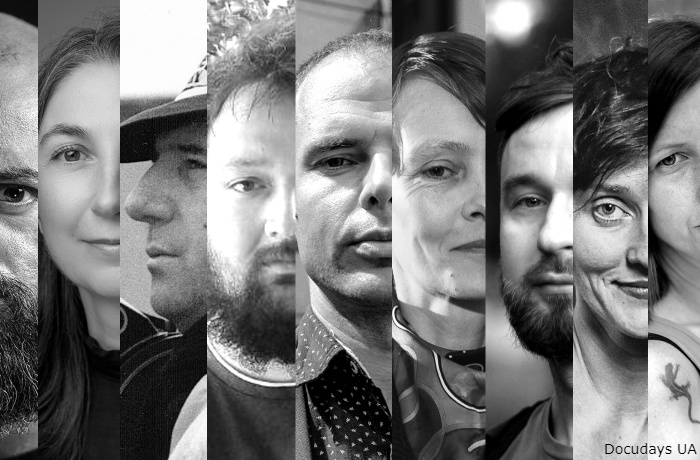 Gediminas Andriukaitis joined this year’s Docudays UA jury
Gediminas Andriukaitis joined this year’s Docudays UA juryWhat are your favourite movies at this festival?
Oh, the program offers a wide variety of films, and there are many powerful ones in their own right. However, the film that stands out as the most heartbreaking and emotionally impactful is definitely “20 Days in Mariupol.” It’s something that genuinely leaves you breathless after the screening. That is the most powerful film.
On the other hand, I liked different films, some more poetic. For instance, the short film “Waking Up in Silence” touched me greatly.
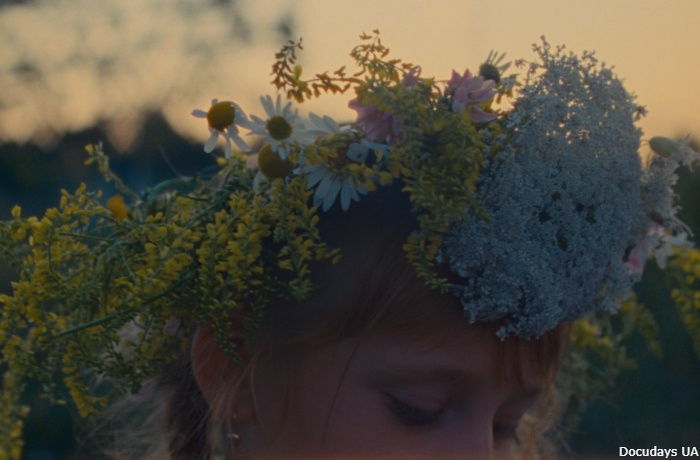 A screenshot from the “Waking Up in Silence” film
A screenshot from the “Waking Up in Silence” filmAlso, I enjoyed the documentary film “King Lear: How We Looked for Love During the War”. It is very special because it shows genuine moments of the vulnerability of ordinary people facing this disaster, who are trying to find ways to survive, galvanised by a supportive community in Uzhhorod. There are so many beautiful moments of them sharing their hopes amidst the reality of their situation.
Unfortunately, I was there just a few days, but did have a chance to participate in several Docudays UA discussions. I found them both very interesting and very well done. The debate regarding investigative journalists is about how journalism can help obtain justice. The conversation with the Ukrainian journalists, who were there on the panel, was highly relevant, robust and interesting.
Another discussion was how cultural artists or Ukrainian diplomats position the Ukrainian agenda in the international arena – which is a crucial aspect of this war. In many ways, it was a successful endeavour, how Ukrainian activists and cultural figures delivered the messages powerfully. The narrative is definitely on the Ukrainian side. Few people have any doubts about this conflict anymore, owing to the many efforts of cultural diplomacy.
You studied international law at Vilnius University, were a director of the Lithuanian Human Rights Centre for a while and then founded the Inconvenient Films company. Why have you decided to change your career by switching to documentary-making?
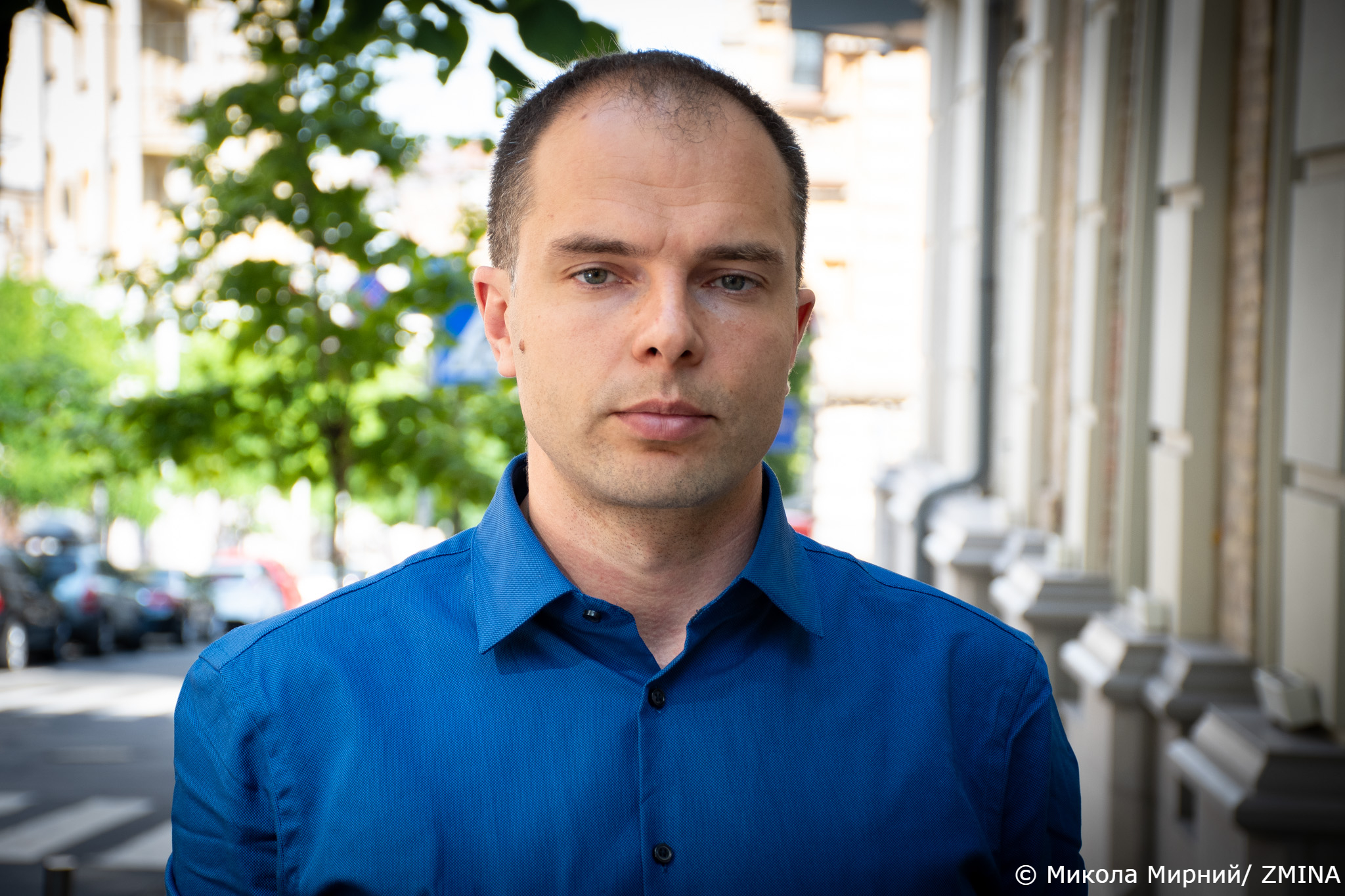 Gediminas Andriukaitis
Gediminas AndriukaitisMy journey is quite a specific one. As festival director, I had no film background, which is unusual. But I started volunteering in the human rights organisation many years ago. I wanted to contribute somehow to bring human rights issues to wider audiences. In the 2000s,specific topics, although very low on the agenda, were nevertheless extremely sensitive, and I wanted to discuss them more openly.
By accident, I happened upon this concept via the Watchdog Film Festival, organised by the Helsinki Human Rights Foundation in Warsaw. I got introduced to films, and I felt them so powerful and interesting that I decided to try to do something like that in Lithuania. So that’s how I started this festival. And for quite a few years, it became a spare-time project, alongside my legal and research work. I did this juggling act for many years, sitting on two chairs, but at the same time. I developed a big passion for human rights documentaries and eye-opening experiences for wider audiences.
At some point, I realised it was unsustainable and needed to choose. Eventually, I decided to focus on the festival and its activities.
My legal background helps me to ensure that the festival is up-to-date when it comes to human rights challenges, advocacy and making a change in society. For me, this is one of the biggest motivations to run a film festival. I’m not there to enjoy people, to please someone. The festival is called “Inconvenient Films” for a clear reason.
But why in particular was your choice documentary films?
Films can make people challenge their stereotypes, experience personal stories from entirely different emotional levels, and change their minds. With the film festival and all its related projects, I can significantly impact the society I live in more than as a researcher or legal analyst.
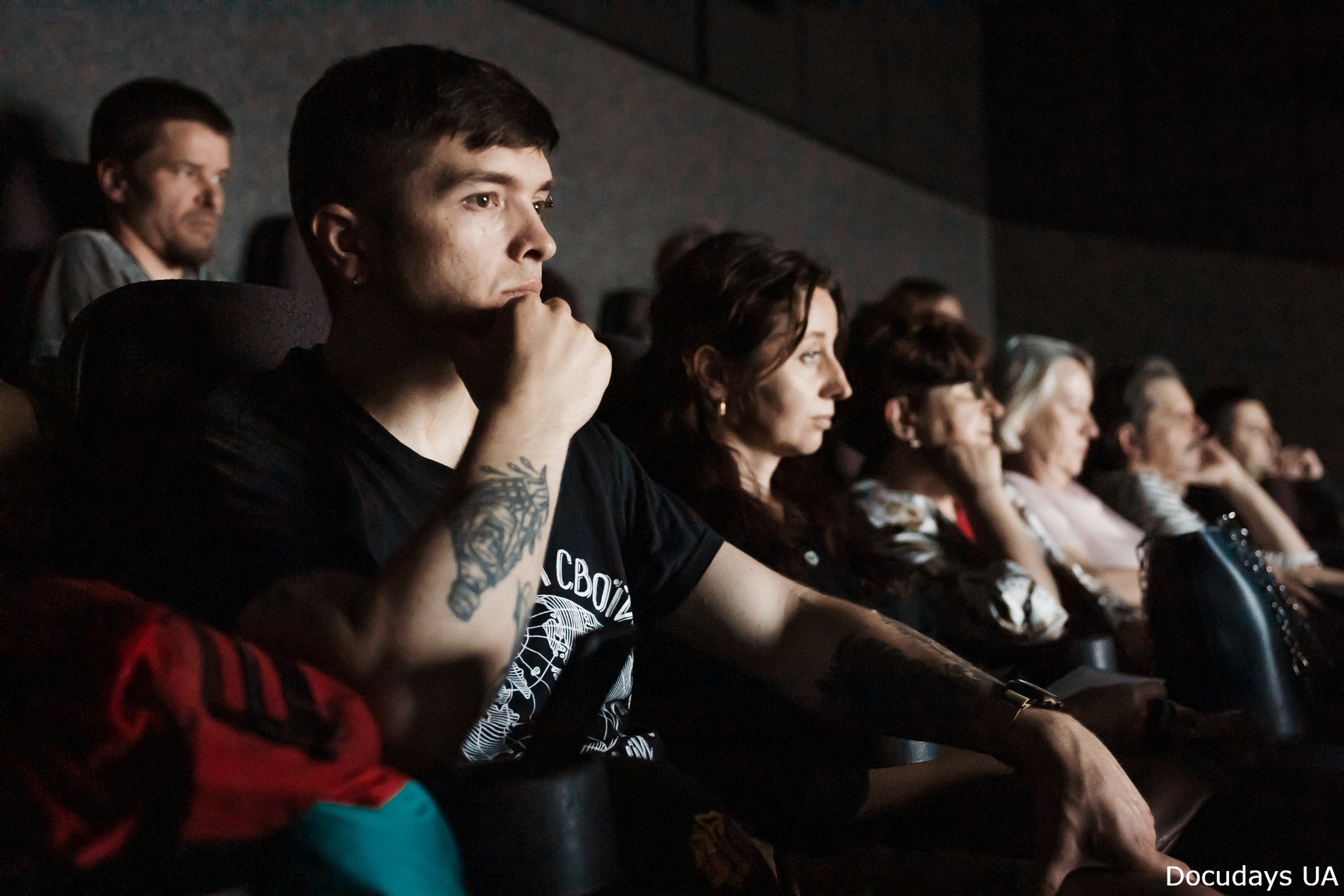
Because when you are a legal expert, researcher and you are dependent on different kinds of additional inputs. If you provide your evaluation for legislation, it doesn’t necessarily mean that the parliament will amend this legislation. You have to fight for it for many years. With the festival, I have more control over the impact that I can produce.
Two non-profit organisations organise the Inconvenient Film Festival. We founded another organisation, Inconvenient Films, focusing on film distribution and other film-related aspects.
On one side, the Lithuanian Center for Human Rights and my colleagues there have extensive expertise when it comes to legal issues and challenges. They work on the ground and advocate to bring about specific changes.
On the other hand, Inconvenient Films organisation primarily deals with film acquisition, distribution, and education. So, we have this combined partnership, which is one of the strengths of the whole festival, as it has two strong legs to stand on.
What challenges did human rights organisations face in your country last year?
There are plenty of challenges, as in every society. Lithuanian Centre For Human Rights has had expertise in non-discrimination, equality, and gender equality issues. These are the substantial themes we are working on, for instance, ensuring that Lithuania adopts the Istanbul Convention, which still needs to be adopted in my country. We have a wide field of domestic and gender-based violence. We believe that Lithuania has to carry out its obligations much more intensively.
Even though we implemented EU anti-discrimination legislation, LGBTQ people still do not have a right to partnership. For the last couple of years, we have been working a lot on convincing the Lithuanian parliament and society that this is the inevitable step we must take if we want to be part of the European community.
I worked a lot as a researcher and continue to work as a festival organiser in the area of inclusivity and the accessibility of goods and services to people with special needs. Lithuania has much to do to ensure that all people have access to culture, education, goods and services. There are so many barriers for people with disabilities, that we have to work for many years to come.
This applies to films as well. You will find very few cinemas in Lithuania accessible for people with disabilities. It also concerns the content of films itself. Very few films are adapted for blind people or people with hearing disabilities. Therefore, at the festival, we also try to contribute by explaining that we have to take these steps to ensure that culture and goods and services are more accessible to all people.
Do you already have the concept for this year’s Inconvenient Film Festival? Which films will be shown to viewers during the festival?
We are now finalising the programme and considering various themes the festival will touch upon. At the moment, we don’t have a leading group. It’s going to be a mixed picture of different themes.
But one of the exciting novelties that we’re going to have is a unique selection of extended virtual reality (VR) works. It is a new medium we’re trying to experiment with. We will make a special selection and presentation of such works at the festival in a gallery setting, where people can come and use a VR set to experience certain content.
There will be a broad spectrum of themes, from challenges to democracy and international affairs, to environmental and sustainable development questions.
Will Ukrainian documentaries be present during the festival, or is there evidence of ‘war-fatigue’?
We are thinking a lot about how to be the most useful for the Ukrainian cause because it has been on the front pages of Lithuanian media since day one. And, even before, with the events in Maidan Square (Kyiv, 2013/14). The Lithuanian audience is very well aware of the developments that are taking place.
I agree with you that some fatigue exists, but with such devastating news as has occurred recently, the fury of people keeps the fire going. We will have certain references toUkraine at the festival. We’re trying to find the best way of doing it.
One of the ideas we have now is to invite perhaps Ukrainian filmmakers who participate in collective filmmaking.
Last year there was a unique case of collaboration within the Lithuanian film community, where they worked on a film about Lithuanian society and its efforts to help the Ukrainian people. They made the first kind of really collective documentary film, which is rare in Lithuania but absolutely not in Ukraine. Ukrainian people, especially on ‘Babylon 13’, have been working like this for many years.
We will try to dig deeper into this collective filmmaking as a phenomenon and see how this collaborative filmmaking initiative can make a bigger impact on society.
Aside from the regular screenings, we absolutely want to show “20 Days in Mariupol”.
Last year we had a chance to bring some Ukrainian filmmakers to Vilnius for special training of social documentary professionals. So absolutely, we’re discussing as a team how to be part of the struggle and how to be helpful and practical.
Let’s discuss the geopolitical dimension of Russia’s unprovoked war against Ukraine. For Ukrainians, certain events of this war will leave lasting imprints. Some have traumatised people, while others will never be forgotten. For instance, locals in the Kherson region describe the explosion at Nova Kakhovka dam caused by the Russians, as reliving February 24th, 2022. What was your experience on February 24th, 2022?
What were your thoughts on that day?
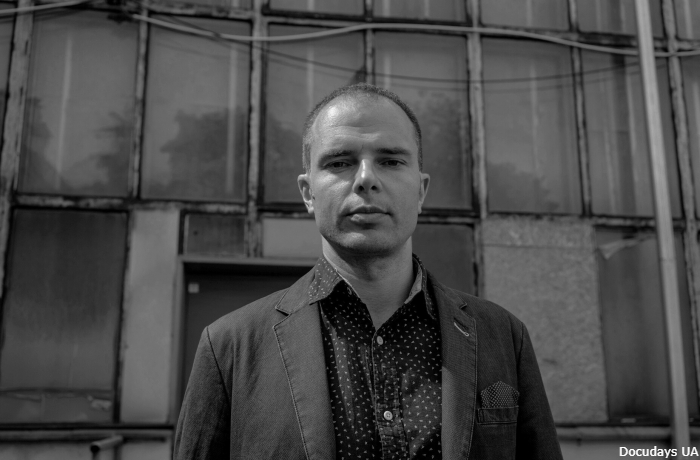 Gediminas Andriukaitis
Gediminas AndriukaitisHonestly, this was a day of deep shock. I immediately felt the ground shaking underneath my feet. It had a massive impact on me personally. I have been following and continue to follow events in Ukraine every single day. I wake up with my phone checking Telegram and YouTube channels, and I go to sleep the same way.
I was thinking about how to be helpful. However, having a couple of small kids and going to Ukraine to help on the ground was a bit of a difficult option for me and at the organization.
We decided to use other means like raising awareness, collecting money. I would say it was one of my life’s most profoundly affecting experiences. A comparison can only be 9/11. An epoch-changing event which will lead to a complete restructuring of the European security framework, hopefully for the better. We all hope.
І think Ukrainian resistance and resilience contributed immensely to the future of the European Union, NATO, the continent’s security and Lithuania. No one sees an option of Ukraine losing this war.
Over the past eight years, various actors in the Baltic region and Ukraine, including politicians and artists, have been sounding the alarm about the disastrous threat posed by Russia. I recall even Ukrainian writer Oksana Zabuzhko’s efforts to persuade European theatre directors to stage Lesya Ukrainka’s play “Kassandra,” which unfortunately went unheard.
And as a German philologist, I had an excellent opportunity to observe German-Ukrainian diplomatic relations. On the surface, they appeared optimistic, but it became evident that these relations were built on hypocrisy. Following the annexation of Crimea in 2014, European countries began to pursue the Nord Stream project.
Why hasn’t Kassandra’s voice been heard? Can you explain why the international community has overlooked the Baltic region, Ukrainians, and Crimean Tatar People?”
There are different layers to this particular problem, as you mentioned. There is an element of hypocrisy because, for many years, countries like Germany or France were benefiting from business relationships with Putin’s Russia, specifically from Russian gas and oil. It was very pragmatic for them to treat Russia as a special kind of democracy and overlook that democracy has specific core values that cannot be compromised.
It is a democracy, or it is not a democracy. Putin managed to convince Western and European elites that his version of democracy was ‘particular’. He claims to be elected, and his statement about democracy is entirely rubbish, as we know. They still thought they had some leverage over Putin’s regime, but they lost track of what was happening.
The second issue was the effectiveness of Russian propaganda and cultural diplomacy, which helped to frame the narrative that, essentially, problems in Ukraine are a matter of internal political battles and so forth, without particular influence from the Kremlin.
A third aspect is the deep historical dimension of Franco-German-Russian relationships, which span many years and centuries, particularly in the aftermath of World War Two. The collective guilt of German society and its attitude towards Russia also has significantly impacted how society and political elites have treated Russia, despite the fact that it is evident that Russia is not a democracy.
The combination of these three elements has led to these deadly results. But fortunately, the situation has now changed, and we are witnessing a remarkable transformation in Germany. As we remember, in the early days of the war, Germans were only willing to send some helmets to Ukrainian militaries, but now the transformation is quite incredible.
Of course, it is always the feeling that everything is too slow, but when we take a broader view of the situation, the sanctions imposed on Putin’s regime are significant. Europe has ultimately made efforts to reduce its reliance on Russian gas and oil. It has invested heavily in defence and supporting Ukraine with powerful weapons instead of sending some stupid helmets.
Do you truly believe that sanctions are effective? Russia succeeds incircumventing them. According to Ukrainian officials, the EU is imposing sanctions too slowly, and they need to be more comprehensive. For example, after the Russians detonated the Nova Kakhovka dam bomb, EU ambassadors disagreed on the next package of sanctions because the Ukrainian Agency for corruption prevention added Greek and Hungarian businesses to the list of international war sponsors who still pay taxes to the Russian budget.
I’m not an international politics expert, but I feel the sanctions will work in the long run in a year or so. They definitely do not provide this immediate effect. Still, it can be achieved by significant military assistance to Ukraine, which is hopefully happening, and will be happening more and more.
There is an extensive discussion about the sanctions and the best way to implement them: they should be focused on individuals or specific sectors of the economy, propaganda, and culture. That’s a complicated question.
Sanctions are working because we see the exclusion of Russia entirely from the gas market and from the oil cap. We are restricting the financial income of Putin’s regime. It will only worsen in the months and years to come.
I’m definitely dissatisfied with the way the military support was increased. We should have asked for more. Military weaponry ought to have been supplied much earlier and in much larger quantities. There were too many discussions for a long time on what to provide and what not to provide. In that sense, we are all dissatisfied with how the major European countries producing military equipment provided this equipment. Luckily, we are now talking about F-16 Fighter jets being provided, but it took a year and a half for it to happen.
In that sense, the international community and the EU were too slow.
How are the voices of politicians and experts from the Baltic states now heard in the EU?
I have the impression that the voices of the Baltic states or Poland are now being treated differently than before, especially after these events.
However, as you know, one of the key issues within the European Union is the need for unanimous consensus on crucial questions. It is both a strength and a weakness of the organisation. When decisions are finally made, it means that everyone is on board and fully committed to them. Although reaching this unanimous consensus requires significant effort.
In my conversations with German citizens, I have noticed that their justifications are based on fake news. For example, there was a circulating fake statement on Twitter that the first lady of Ukraine, Olena Zelenska, spent 40,000 euros shopping during her last visit to Paris during the war. My interlocutor was so outraged by this, while German taxpayers actively support Ukrainians.
Does the EU effectively counter Russia’s disinformation in their countries?
The European institutions did not take Russian propaganda seriously enough before the war. News outlets like Russia Today (RT) freely spread complete lies without any boundaries. RT is now banned in most EU countries.
Freedom of speech is still considered a fundamental right in democratic societies from the European perspective. It was challenging to act in a proper manner when constantly attacked by the flow of Russian propaganda and trolls on social media. Limiting freedom of speech would have been a significant step people must overcome. I believe people did not understand how systematic and professional this propaganda was. Overcoming this challenge required a difficult transition for many societies.
In Ukraine it is believed that our efforts will be in vain without preventive measures to avoid similar disasters in the future. What should these preventive measures be?
I believe Ukraine must be a part of NATO. It’s uncertain whether the NATO summit in Vilnius will result in a formal invitation for Ukraine to join NATO, especially considering the country’s current state of war. However, in the long run, Ukraine must be a part of NATO.
This war has demonstrated that the European Union is our main support. Discussions about country-specific independence aspects in the current global situation seem out of place. Therefore, the European Union must further consolidate with stronger powers and more outstanding defence capabilities and possibly establish an EU army. And Ukraine should be included as part of this collective effort.
From an outsider’s perspective, do you see any strategic shortcomings in how Ukrainians respond to this unprovoked and illegal war by Russia?
Honestly, we were very impressed by the way Ukrainian spokespersons have effectively taken control of the narrative and communicated efficiently. I wouldn’t say any significant mistakes were made during this time.
Considering thescale of the crisis and the events’ intensity, most of these actions were carried out professionally and efficiently. However, we must also recognise that there will be many challenges ahead, especially regarding post-war recovery and shaping Ukraine’s future after victory. It will be a crucial period where Ukrainian authorities will need to demonstrate exceptional professionalism and commitment to implementing reforms and transforming society, which are necessary steps before Ukraine can join the EU. Then we will see how committed the Ukrainian politicians are to this lengthy task.
I extend my best wishes to everyone involved, and the Lithuanian, Baltic, and Polish societies will be the first to offer their assistance in various ways throughout this process.
I want to express that the Ukrainian resistance has been a huge inspiration for everyone, and we sincerely hope that people will continue to persevere until this terrible tragedy is over. We will continue to support Ukraine for as long as it takes because this is not just Ukraine’s fight for its independence but for democracy and the security of Europe.

